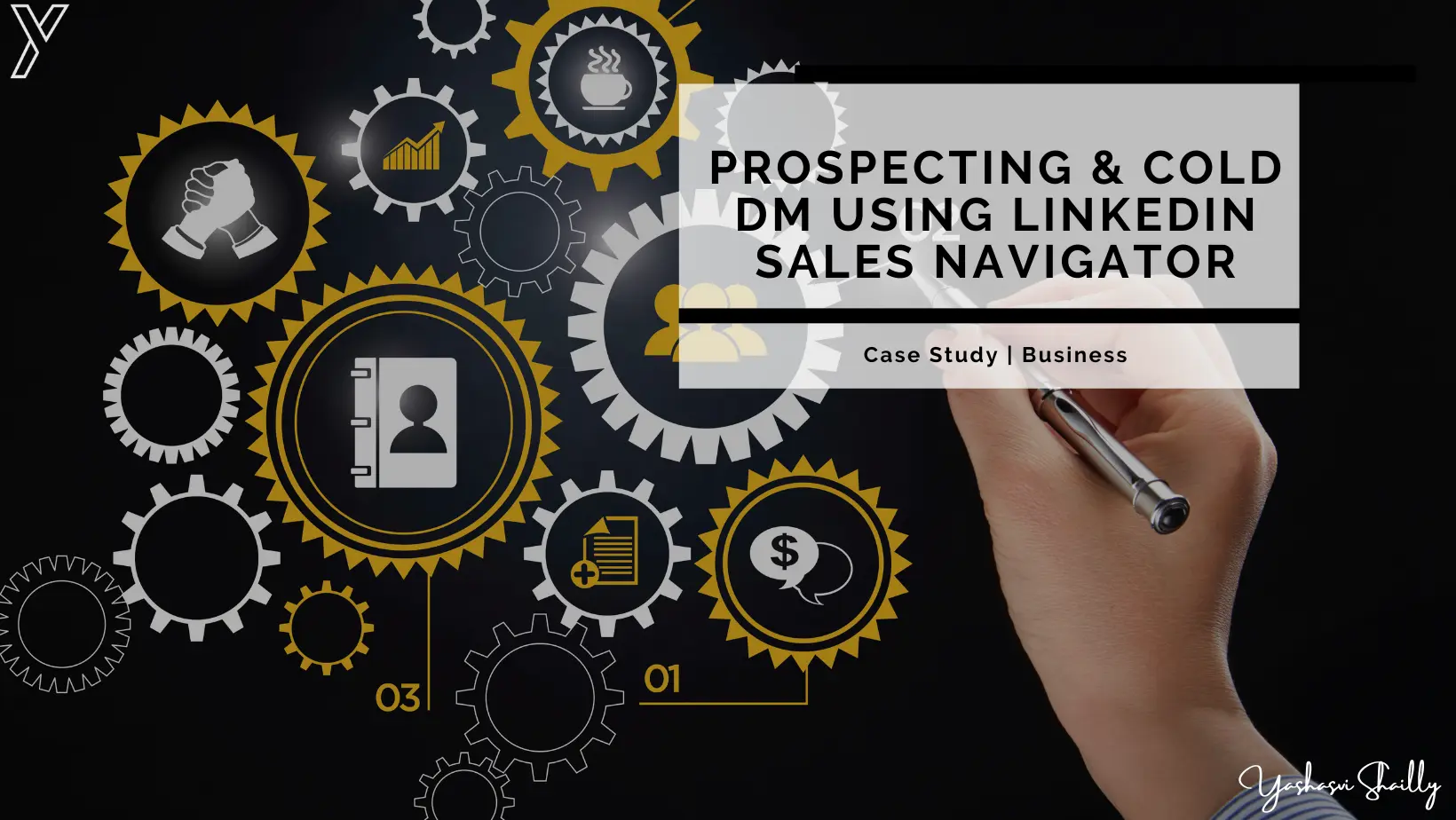Data has become the driving force behind decision-making and strategy formulation in today’s competitive business landscape. For B2B (business-to-business) companies, harnessing the power of data analysis and lead generation has become crucial for achieving sustainable growth and success. In this blog post, we explore the role of data analysis in driving business success. We will also discuss the importance of lead generation and how it impacts revenue growth and share strategies and techniques for utilizing data to generate leads and optimize lead generation processes. To provide a practical perspective, we will highlight specific examples and case studies of successful lead-generation efforts, including personalized communication and targeted strategies.
Data Analysis: Unlocking Business Success
In the modern business environment, data is abundant and readily available. B2B companies generate and collect vast amounts of data from various sources, such as customer interactions, sales transactions, marketing campaigns, and website analytics. However, the real value of data lies in the insights it can provide when analyzed effectively. Data analysis involves systematically examining data to identify patterns, trends, and correlations that can inform decision-making and drive business success.
Microsoft Office, one of the leading productivity suites, offers powerful tools for data analysis, such as Excel and Power BI. Excel enables businesses to analyze data using functions, formulas, and pivot tables. At the same time, Power BI provides interactive and customizable dashboards for visualizing data in real-time. These tools can help B2B businesses gain insights from their data, uncover hidden opportunities, identify areas for improvement, and make data-driven decisions.
Google Trends, a free online tool, provides valuable insights into consumer search behavior and market trends. B2B businesses can leverage Google Trends to identify popular keywords and topics related to their industry, understand seasonal trends, and monitor the popularity of their brand or competitors. This information can inform content marketing strategies, SEO (search engine optimization) efforts, and product development plans.
Importance of Lead Generation for B2B Businesses
Lead generation attracts and captures potential customers or leads interested in a company’s products or services. For B2B businesses, lead generation is critical to the sales and marketing funnel. It helps identify and nurture potential customers more likely to convert into paying customers. Effective lead-generation strategies can generate a steady flow of qualified leads, ultimately driving revenue growth and business success.
It is not just about quantity but also quality. B2B businesses need to focus on generating high-quality leads that are relevant, engaged, and likely to convert. This requires a deep understanding of the target audience, pain points, and preferences. B2B businesses also need to align their lead gen efforts with their overall business goals and marketing strategies, ensuring they are targeting the right prospects and using the right channels and tactics to reach them.
Utilizing Data for Lead Generation and Optimizing Lead Generation Processes
Data analysis plays a crucial role in lead generation for B2B businesses. By leveraging data, B2B businesses can gain insights into their target audience, behaviors, preferences, and needs. This information can be used to create personalized and relevant marketing campaigns that resonate with potential customers and increase the chances of converting them into leads.
For instance, B2B businesses can analyze their website analytics data to understand the behavior of their website visitors, such as the pages they visit, the content they engage with, and the actions they take. This data can inform the creation of targeted landing pages, tailored content offers, and personalized email campaigns specifically designed to capture leads and nurture them through the sales funnel.
Businesses can analyze data from their lead generation efforts to identify patterns and trends that can help them optimize their strategies. For example, the performance of different lead generation channels, such as social media, email marketing, content marketing, and paid advertising, and determine which channels drive the most qualified leads. This information can guide businesses in reallocating resources and refining their strategies to focus on the most effective channels.
In addition, B2B businesses can use data to measure and track the success of their lead-generation efforts. They can set up key performance indicators (KPIs) and use data analysis to regularly assess the performance of their lead generation campaigns against these KPIs. This allows them to identify areas for improvement, make data-driven adjustments, and continuously optimize their lead-generation processes to achieve better results.
Examples of Successful Lead Generation Efforts
Some examples of successful data-driven lead generation efforts from Indian B2B companies:
- TATA Consultancy Services (TCS) - One of India’s largest IT services companies, uses data analysis to optimize its lead generation efforts. They leverage data from their CRM system to segment their target audience based on factors such as industry, company size, and location. They then create personalized content and campaigns tailored to each segment, resulting in higher engagement and lead conversions.
- Zoho Corporation - Zoho, a leading software company that offers a suite of business applications, uses data-driven email marketing for lead generation. They segment their email lists based on data such as customer behavior, preferences, and interests and send targeted emails with relevant content and offers. This approach has improved open rates, click-through rates, and lead quality.
- InfoEdge India Limited - InfoEdge, a prominent online classifieds and recruitment company in India, uses data analysis to optimize its paid advertising campaigns for lead generation. They analyze data on ad performance, such as click-through rates, conversion rates, and cost per click, to identify the most effective ad placements, keywords, and ad copies. This helps them refine their advertising strategy and generate high-quality leads.
- InMobi - InMobi, a global mobile advertising platform, uses data-driven content marketing for lead generation. They create data-rich, thought leadership content that addresses the pain points of their target audience and promotes their expertise in the mobile advertising space. They then use data analysis to measure the performance of their content and make data-driven decisions on content creation, distribution, and promotion, resulting in increased brand awareness and lead generation.
- Freshworks - Freshworks, a SaaS (Software-as-a-Service) company that provides customer engagement and support software, use data-driven social media marketing for lead generation. They leverage data from social media analytics to identify the most effective platforms, content formats, and messaging for their target audience. They also use social listening tools to monitor conversations and engage with potential leads in real time, resulting in higher engagement and lead conversions.
In today’s data-driven business landscape, B2B businesses cannot afford to ignore the power of data analysis and lead generation. By leveraging data and utilizing data-driven strategies for lead generation, B2B businesses can gain valuable insights into their target audience, optimize their lead generation processes, and achieve sustainable business growth. Whether using tools like Microsoft Office and Google Trends for data analysis, creating personalized marketing campaigns, or continuously measuring and optimizing lead generation efforts, data-driven strategies are essential for mastering lead generation and driving business success.








